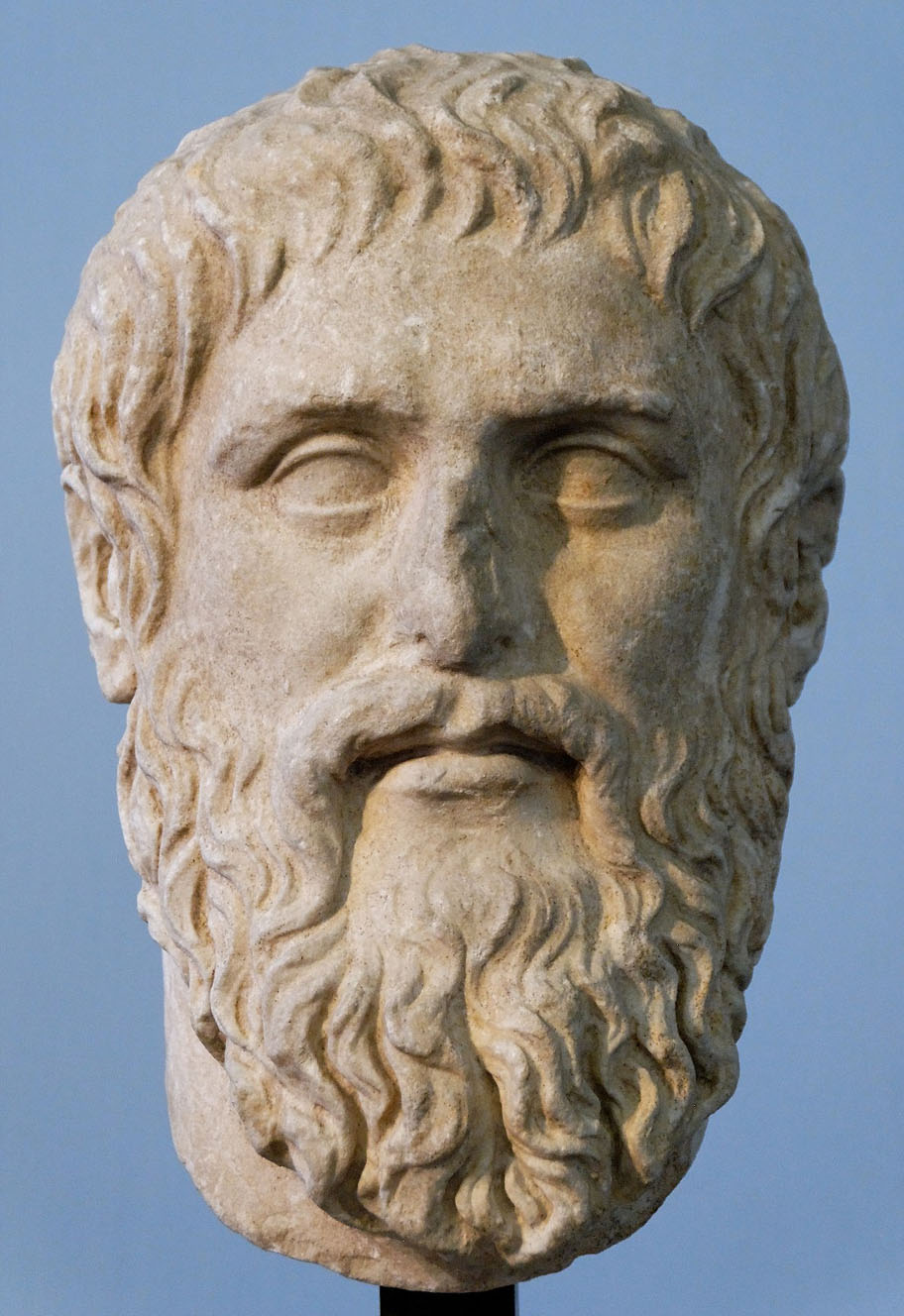Plato
Born:
C. 428/427 BCE
Died:
C. 348/347 BCE
Plato was a philosopher in ancient Greece and one of the most influential figures in the history of Western philosophy. He was a student of Socrates and the teacher of Aristotle. Plato's philosophical ideas, expressed in the form of dialogues, cover a wide range of topics, including metaphysics, epistemology, ethics, politics, and aesthetics. Here are key aspects of Plato's life and contributions:
Early Life and Education: Plato was born into an aristocratic family in Athens, Greece, around 428 or 427 BCE. He likely came from a politically active family, and his original name was Aristocles. The name "Plato," meaning "broad" or "wide," is believed to have been a nickname reflecting his physique or his broad style of thought.
Student of Socrates: Plato became a devoted disciple of Socrates, a philosopher known for his method of questioning, or the Socratic method. Socrates's influence is evident in many of Plato's early dialogues, where Socrates is the main interlocutor.
Philosophical Method: Plato's philosophical writings are primarily in the form of dialogues, featuring conversations between characters who explore various philosophical questions. Through the Socratic method, Plato used dialectical questioning to lead his interlocutors toward a deeper understanding of concepts and to expose contradictions in their beliefs.
Theory of Forms: One of Plato's most influential and enduring ideas is the Theory of Forms (or Ideas). According to this theory, the material world is a reflection or imperfect copy of a realm of eternal, unchangeable Forms or Ideas. The Forms are abstract entities that represent the true reality of things, and the physical world is a mere shadow or imperfect representation of these Forms.

Quick Facts
- Plato's philosophical method was primarily through dialogues, featuring conversations between characters exploring various philosophical questions.
- Plato's most influential and enduring idea is the Theory of Forms, positing that the material world is a reflection of a realm of eternal, unchangeable Forms or Ideas.
- Plato founded the Academy in Athens, often considered the first institution of higher learning in the Western world.
- His political philosophy, as outlined in "Republic," explores the concept of justice and outlines an ideal state led by philosopher-kings.
Further Reading
Art &
Architecture
Ancient Greek art and architecture, with its harmonious proportions and timeless elegance, continue to inspire awe and admiration millennia later.
Discover
Greek Mythology & Mythical Characters
Greek mythology, a rich tapestry of gods, heroes, and mythical creatures, captivates the imagination with its tales of love, betrayal, and epic adventures that delve into the depths of the human psyche.
Discover
Ancient Greek History
Ancient Greek history, marked by remarkable achievements in democracy, philosophy, and warfare, shaped the foundation of Western civilization, leaving an indelible legacy of innovation and cultural influence that continues to resonate to this day.
Discover
Ancient Greek Olympics
The ancient Greek Olympics, held in Olympia every four years, celebrated athleticism, unity, and cultural pride, serving as a testament to the enduring spirit of competition and excellence that transcends time and borders.
Discover
Ancient Greek Wars
Ancient Greek wars, such as the Persian Wars and the Peloponnesian War, were pivotal conflicts that shaped the course of history, highlighting the struggle for power, independence, and the clash of civilizations in the ancient Mediterranean world.
Discover
Ancient Greek Culture and Society
Ancient Greek culture and society, characterized by its emphasis on art, philosophy, and civic engagement, fostered a vibrant intellectual and social landscape where innovation flourished, democracy thrived, and the pursuit of knowledge and excellence was celebrated as fundamental values of civilized life.
Discover